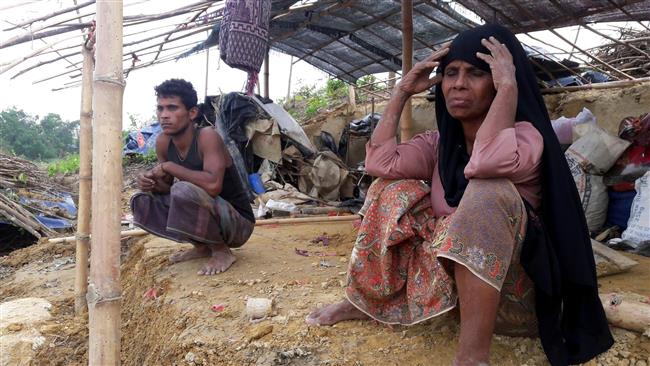
RNA - Kyaw Zeya, a permanent secretary at Myanmar’s Ministry of Foreign Affairs, said the government would not grant visas to the UN staffers.
“If they are going to send someone with regards to the fact-finding mission, then there’s no reason for us to let them come,” he said. “Our missions worldwide are advised accordingly.”
The government in the capital, Naypyidaw, which is practically led by Aung San Suu Kyi, had already said it would not cooperate with a UN mission in the country.
The United Nations Human Rights Council agreed in March to send an international fact-finding mission to Myanmar and called on Suu Kyi to “fully cooperate.” During a trip to Sweden this month, however, she claimed that the UN mission “would have created greater hostility between the different communities.”
Rakhine State Investigation Commission officials meet Rohingya Muslims near the Bangladesh border, in Myanmar, December 016. (Photo by AFP)
Myanmarese troops and police are accused of killing and raping Rohingya Muslims, who are denied citizenship in Myanmar and widely viewed as outsiders by the majority Buddhists.
The more than one million Rohingya Muslims have been suffering widely-reported aggression for years in Myanmar’s western state of Rakhine, which has also been under a military lockdown since October 2016. The government used a militant attack on border guards back then as the pretext to enforce the siege.
Since then, the military has banned journalists and aid workers from entering the area. Hundreds have been killed and more than 1,000 houses burned down. Some 75,000 Rohingya Muslims have already been forced to flee to neighboring Bangladesh.
There have been numerous accounts by eyewitnesses of summary executions, rapes, and arson attacks against Muslims since the crackdown began.
Suu Kyi, a holder of the Nobel Peace Prize, is accused of allowing the atrocities to continue by failing to take almost any action.
847/940